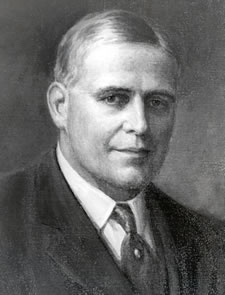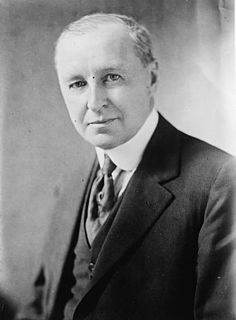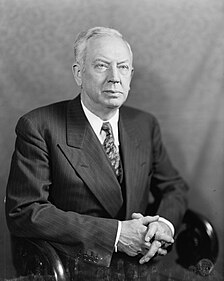
The Pennsylvania gubernatorial election of 2006 was held on November 7, 2006 and included the races for the Governor of Pennsylvania and Lieutenant Governor of Pennsylvania.

The 1886 South Carolina gubernatorial election was held on November 2, 1886 to select the governor of the state of South Carolina. John Peter Richardson III was nominated by the Democrats and became the 83rd governor of South Carolina.

The 2010 Pennsylvania gubernatorial election was held on November 2, 2010, to elect the Governor and Lieutenant Governor of Pennsylvania, concurrently with elections to the United States Senate in Pennsylvania and other states and elections to the United States House of Representatives and various state and local elections.

Pennsylvania, like neighboring New Jersey, has swung from being a Republican-leaning state during much of the 20th century to a more competitive state in national presidential elections. Pennsylvania has backed the Democratic presidential candidate in every election since 1992 up until 2016, when it was won by Republican candidate Donald Trump. In 2008, Barack Obama won almost all of the Philadelphia suburbs. Statewide, John McCain won almost three times as many counties (48) as Obama (19), but Obama won the most populous counties and therefore won the popular vote for the state, carrying its 21 electoral votes.

The Pennsylvania lieutenant gubernatorial election of 2010 was held on November 2, 2010. The winning candidates for Governor and Lieutenant Governor will serve a four-year term from 2011 to 2015. In Pennsylvania, the Lieutenant Governor is elected on the same ticket as the Governor, so the only campaign for this office was the primary election. As a result of Tom Corbett's election to the position of governor, Jim Cawley became the new Lieutenant Governor.

The Pennsylvania Gubernatorial election of 1990 was held on November 6, 1990. Incumbent Democratic Robert P. Casey easily defeated Republican Barbara Hafer. Governor Casey defeated Ms. Hafer by a margin of 35.29%, and carried 66 out of 67 Pennsylvania counties.

The 1976 United States presidential election in Pennsylvania took place on November 2, 1976, and was part of the 1976 United States presidential election. Voters chose 27 representatives, or electors to the Electoral College, who voted for president and vice president.

The Pennsylvania gubernatorial election of 1844 occurred on November 5, 1844. Incumbent Democratic governor David R. Porter was not a candidate for re-election. Democratic candidate Francis R. Shunk defeated Whig candidate Joseph Markle to become Governor of Pennsylvania.

The Pennsylvania gubernatorial election of 1906 occurred on November 6, 1906. Incumbent Republican governor Samuel W. Pennypacker was not a candidate for re-election. Republican candidate Edwin Sydney Stuart defeated Democratic candidate Lewis Emery, Jr. to become Governor of Pennsylvania.

The Pennsylvania gubernatorial election of 1914 occurred on November 3, 1914. Incumbent Republican governor John K. Tener was not a candidate for re-election. Republican candidate Martin Grove Brumbaugh defeated Democratic candidate Vance C. McCormick to become Governor of Pennsylvania.

The Pennsylvania gubernatorial election of 1918 occurred on November 5, 1918. Incumbent Republican governor Martin Brumbaugh was not a candidate for re-election. Republican candidate William Sproul defeated Democratic candidate Eugene C. Bonniwell to become Governor of Pennsylvania.

The Pennsylvania gubernatorial election of 1922 occurred on November 7, 1922. Incumbent Republican governor William Sproul was not a candidate for re-election. Republican candidate Gifford Pinchot defeated Democratic candidate John A. McSparran to become Governor of Pennsylvania.

The Pennsylvania gubernatorial election of 1926 occurred on November 2, 1926. Incumbent Republican governor Gifford Pinchot was not a candidate for re-election. Republican candidate John Fisher defeated Democratic candidate Eugene C. Bonniwell to become Governor of Pennsylvania.

The Pennsylvania gubernatorial election of 1930 occurred on November 4, 1930. Incumbent Republican governor John Stuchell Fisher was not a candidate for re-election. Republican candidate and former governor Gifford Pinchot defeated Democratic candidate John M. Hemphill to win a second, non-consecutive term as Governor of Pennsylvania.

The Pennsylvania gubernatorial election of 1934 occurred on November 6, 1934. Incumbent Republican governor Gifford Pinchot was not a candidate for re-election. Democratic candidate George Howard Earle III defeated Republican candidate William A. Schnader to become Governor of Pennsylvania. This was the first Pennsylvania gubernatorial election won by the Democratic Party since 1890.

The Pennsylvania gubernatorial election of 1938 occurred on November 8, 1938. Incumbent Democratic governor George Howard Earle III was not a candidate for re-election. Republican candidate Arthur James defeated Democratic candidate Charles Alvin Jones to become Governor of Pennsylvania.

The Pennsylvania gubernatorial election of 1942 occurred on November 3, 1942. Incumbent Republican governor Arthur James was not a candidate for re-election. Republican candidate Edward Martin defeated Democratic candidate F. Clair Ross to become Governor of Pennsylvania.

The 2018 Pennsylvania gubernatorial election took place on November 6, 2018, to elect the Governor and Lieutenant Governor of Pennsylvania, concurrently with the election of Pennsylvania's Class I U.S. Senate seat, as well as elections to the United States House of Representatives and various local elections. Incumbent Democratic Governor Tom Wolf won re-election to a second term by a double-digit margin, defeating Republican challenger Scott Wagner and two third-party candidates from the Green Party and Libertarian Party, respectively. The primary elections were held on May 15.

The 1812 United States presidential election in New York took place between October 30 and December 2, 1812, as part of the 1812 United States presidential election. The state legislature chose 29 representatives, or electors to the Electoral College, who voted for President and Vice President.




















